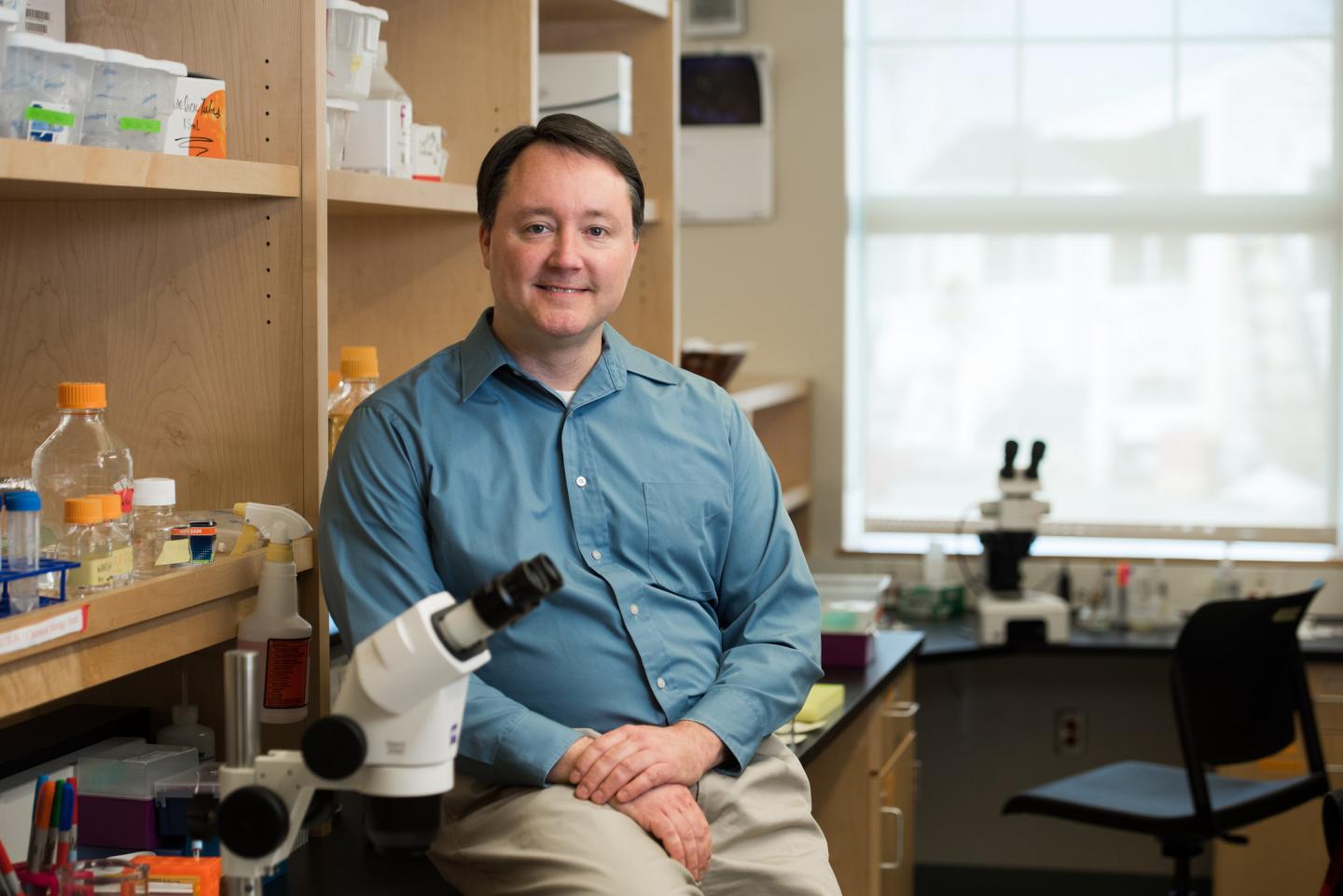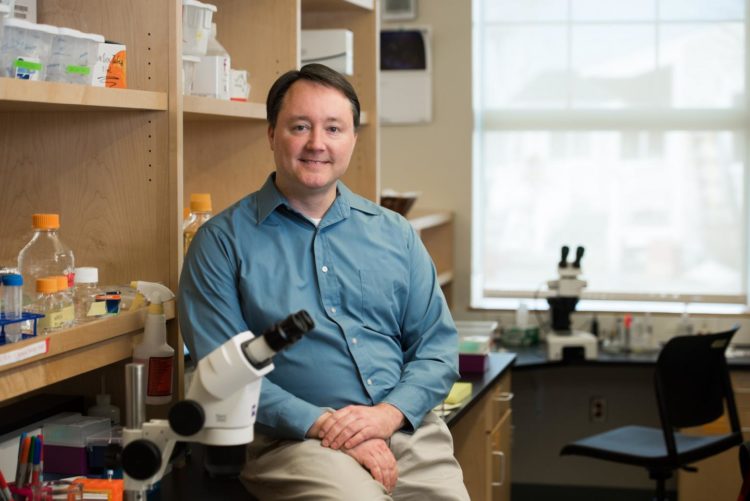Award to Aric Rogers, Ph.D., could lead to therapies to extend healthy lifespan

Credit: MDI Biological Laboratory
BAR HARBOR, MAINE — The MDI Biological Laboratory has announced that the U.S. Department of Health and Human Services has awarded a grant in the amount of $373,500 per year for five years to Aric Rogers, Ph.D., to support his research on the cellular and molecular mechanisms governing aging.
The understanding of these mechanisms that will be gained from this research holds the prospect of contributing to new therapies to delay or offset the effects of age-related diseases and conditions, and in particular the loss of muscle mass that occurs with advancing years — a condition called sarcopenia.
“This grant will allow Aric to continue with his important work of deciphering the pathways that govern aging,” said Hermann Haller, M.D., president of the MDI Biological Laboratory. “Science is closing in on the ability to extend healthy lifespan, and this grant will bring us even nearer to achieving that goal.”
The grant will support Rogers’ continuing research on the mechanisms of aging in C. elegans, a nematode worm that is a popular model in aging research because of its genetic similarity to humans and its three-week lifespan, which allows scientists to quickly assess the effectiveness of anti-aging interventions.
The grant has special implications for the health of the residents of Maine, which is the state with the nation’s oldest population.
“Thousands of seniors across Maine struggle to manage costly and time-consuming care for their age-related conditions,” said U.S. Sens. Susan Collins, the chairman of the Senate aging committee, and Angus King in a joint statement. “As the state with the oldest median age in the nation, Maine has a unique responsibility to take a leadership role in helping our seniors stay healthy as they age.”
“Dr. Rogers’ research is important to understanding the factors that lead to age-related conditions and to helping innovators develop therapies for seniors that could reduce or postpone their symptoms,” the statement continued.
Both senators have made aging issues a legislative priority in response to the demographics of their constituencies.
In his career in aging biology, Rogers has focused on the study of the genetic pathways that regulate dietary restriction (DR), or a reduction in calories without malnutrition, which science has shown to extend healthy lifespan in a wide range of organisms, from one-celled yeasts to primates such as humans.
The reasons behind the ability of DR to extend healthy lifespan have been well demonstrated — because nature wants an organism to survive in order to reproduce, the genetic machinery of the cell shifts in response to a lack of food from an emphasis on growth, which is costly in terms of cellular resources, to an emphasis on survival.
As part of its survival strategy, the cell enters a state of catabolism, meaning that cellular constituents are broken down for the energy and raw materials that are normally supplied by food. In his previous research, Rogers found that there is an exception to the reduced emphasis on growth, however: enhanced muscle maintenance.
The grant will support further research on Rogers’ earlier findings, which showed that
muscle may be preferentially protected — or “privileged” — under conditions of DR. Rogers believes that DR promotes the replacement of muscle components by activating genes that control muscle structure and function.
He hypothesizes that this is nature’s way of ensuring that an organism is able to maintain the muscle strength and functionality needed to continue to forage for food in the face of a scarcity of nutrients. His discovery may have applications for the treatment of sarcopenia, or the muscle wasting that is a natural part of aging.
“One of the greatest health risks of aging is frailty, which is caused by loss of muscle mass and integrity,” Rogers said. “By gaining a better understanding of the mechanisms by which muscle tissue is maintained under conditions of DR, we can inform efforts to develop drugs that promote the function and maintenance of skeletal muscle with age.”
Sarcopenia is one of the most important causes of functional decline and loss of independence in older adults. Though it typically begins in the thirties, it starts to accelerate around age 75 and by the time an individual has reached the eighties can result in the loss of up to 50 percent of muscle mass.
The grant will leverage powerful, state-of-the art genetic tools, many developed in Rogers’ laboratory, to further elucidate muscle-specific responses to DR, which are not well understood.
a
The grant was awarded by the U.S. Department of Health and Human Services under number 1R01AG062575-01.
###
About the MDI Biological Labortory
We are pioneering new approaches to regenerative medicine focused on developing drugs that slow age-related degenerative diseases and activate our natural ability to heal. Our unique approach has identified potential therapies that could revolutionize the treatment of heart disease, muscular dystrophy and more. Through the Maine Center for Biomedical Innovation, we are preparing students for 21st century careers and equipping entrepreneurs with the knowledge, skills and resources needed to turn discoveries into applications that improve human health and well-being. For more information, please visit mdibl.org.
Media Contact
Stefanie Matteson
[email protected]
201-787-7427
Original Source
https:/





